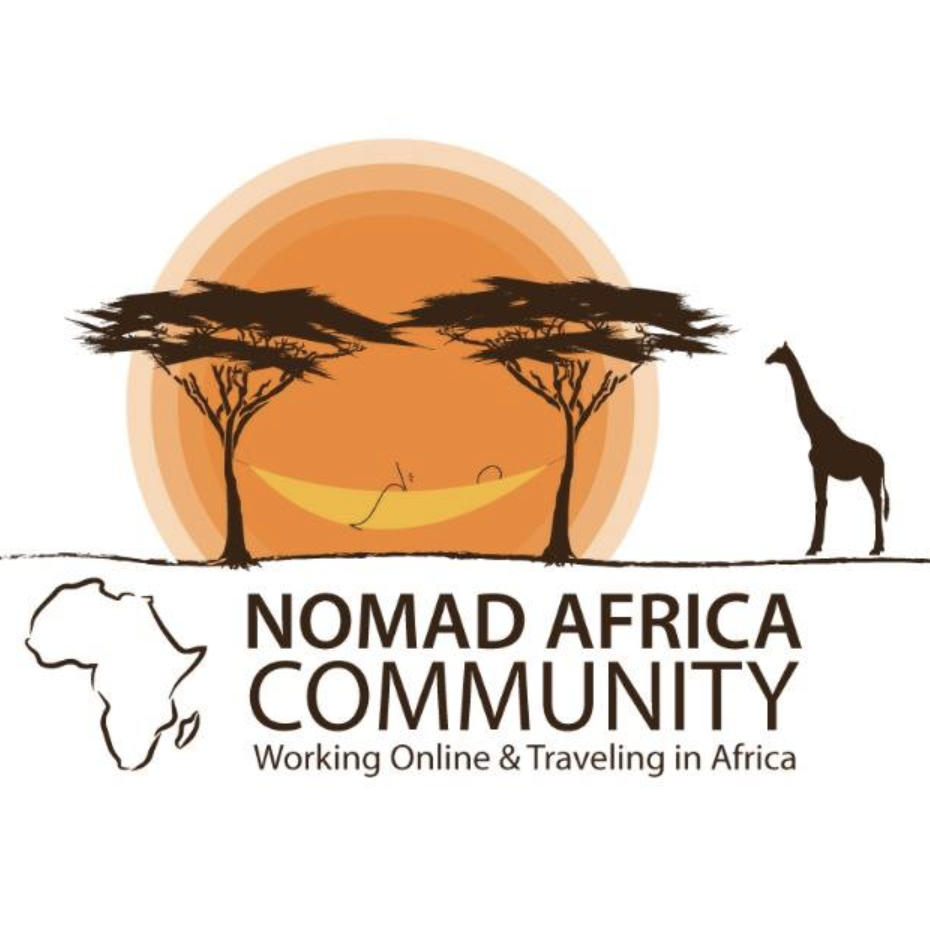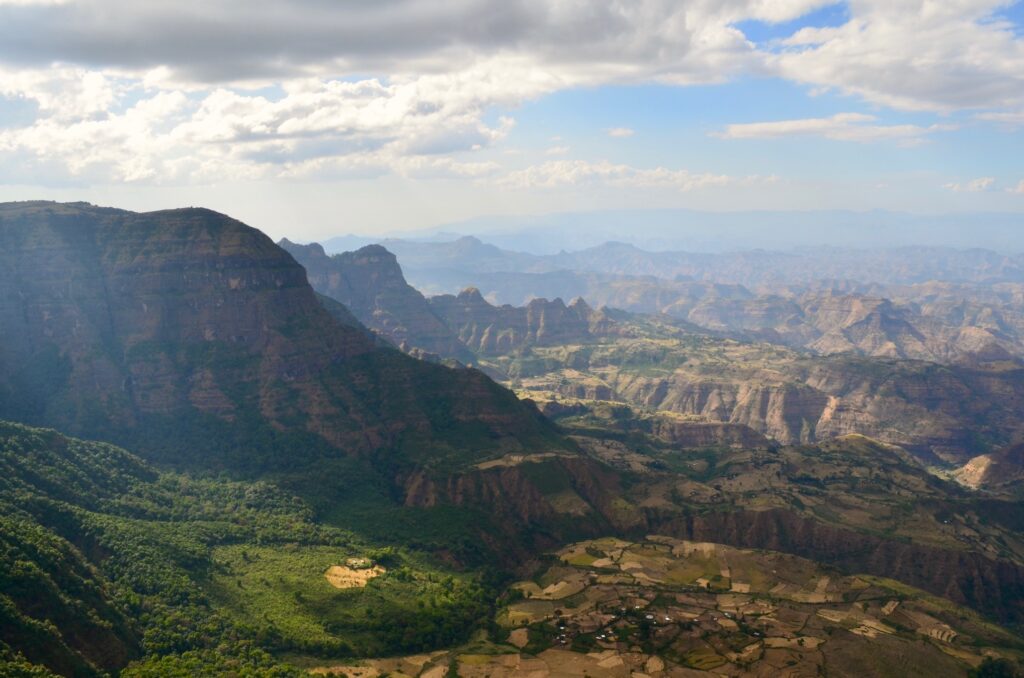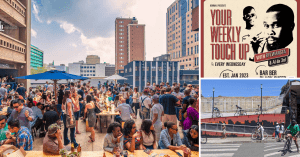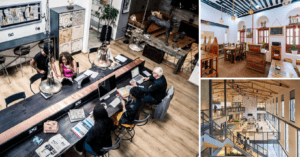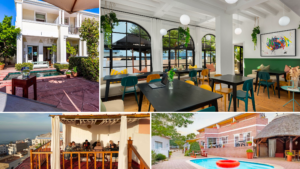While Ethiopia’s weak telecom infrastructure does present some challenges to people running remote businesses, I’ll show you how to easily get around them.
With that out of the way, what awaits you in Ethiopia?
How about fascinating, ancient, diverse cultures that stretch back to our oldest ancestors? Hiking truly breath-taking scenery, whether you’re 4,000m metres above or 120m below sea level?
Or, maybe just the coffee – it was invented here after all.
As you’re about to see, Ethiopia offers digital nomads a tantalizing prospect: a timeless world unmolested by Western imperialism that is quickly catching up and embracing the 21st century, without sacrificing its unique cultures and diverse identities.
Ethiopia Travel Basics
| Main Languages | Oromo and Amharic; basic English is widely spoken |
| Capital City | Addis Ababa |
| Main Airport | Bole International Airport, Addis Ababa |
| Currency | Ethiopian Birr; US Dollar |
| Time Zone | East African Time (GMT +3); Ethiopian Time (See below) |
| Plug Socket Type | EU style 2-Pin |
| Best time(s) to Visit | September – February |
| Internet Quality | Low |
| Highlights | Nature; People; Culture; Hiking; Food; Coffee |
Ethiopia Highlights
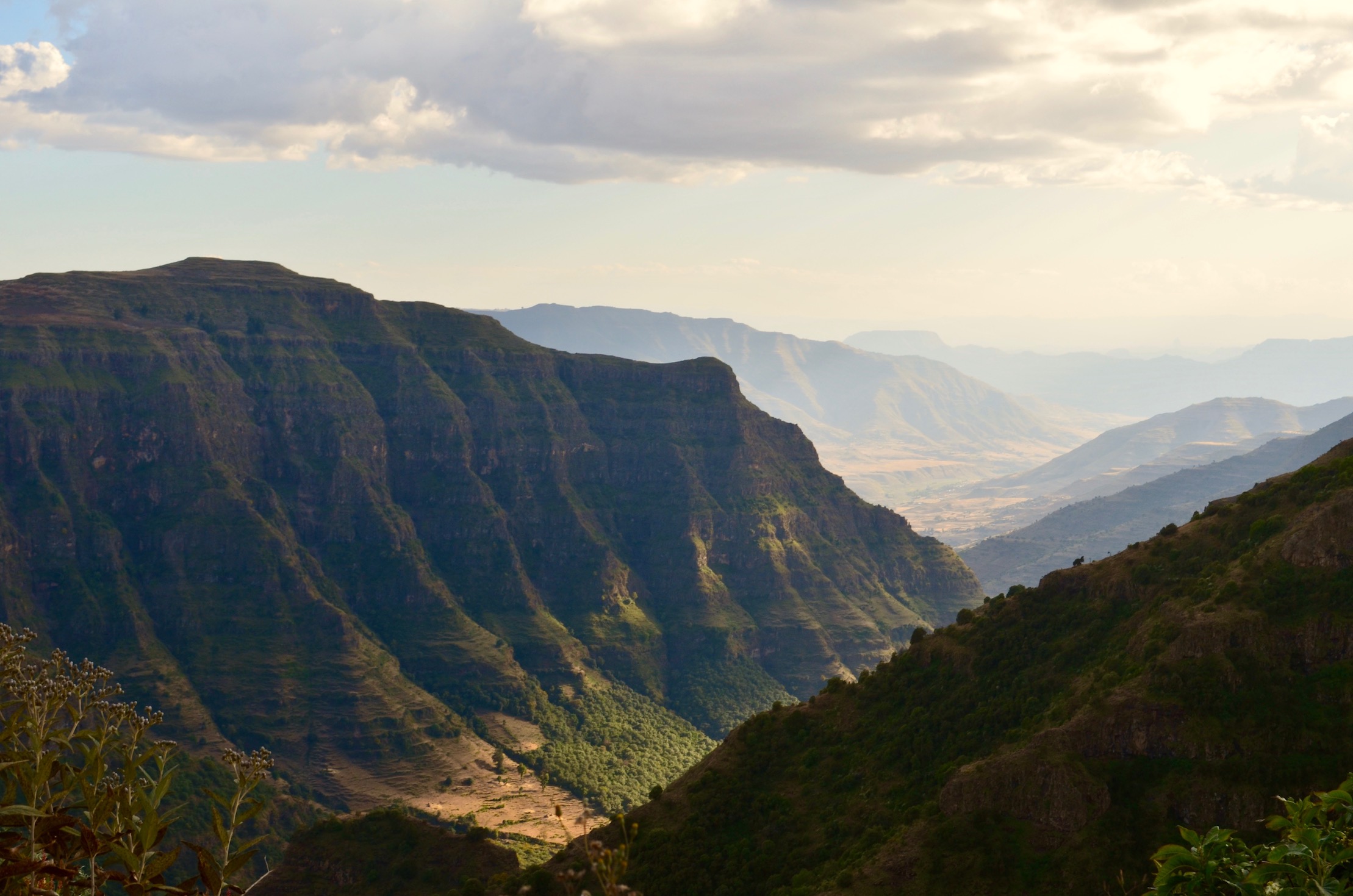
Scenery and Hiking
Ethiopia is known as the Rooftop of Africa, famed for its many spectacular hiking trails. A huge amount of this country is made up of ginormous, rolling hills and valleys, with many peaks soaring 4,000m above sea level.
National parks are easily accessible, with trails that can last from an afternoon to two weeks. Don’t visit Ethiopia without making time for a few days hiking through the countryside.

Coffee and Cuisine
Ethiopia is the birthplace of coffee – what more do we need to say?
It remains integral to life here, with traditional coffee ceremonies still an essential part of every day. Stopping for a few minutes at a small coffee stand is a great way to take in and appreciate the unique character of Ethiopia, wherever you are.
Meanwhile, Ethiopia has the best cuisine in East Africa: rich, varied, and absolutely full of amazing flavours. Every meal is an opportunity to discover something new and delicious.

Ancient, Fascinating Cultures
As you’ll be reminded with much pride during your stay, Ethiopia was never colonized by a European power. And life here can be traced back to humanity’s earliest ancestors.
Put this together, and it’s a heady mix. Ethiopia is otherworldly and ethereal, a time capsule and a taste of an alternate universe in which African cultures not only survived the ravages of European imperialism, but thrived in its absence.
Ethiopians celebrate their unique cultures, heritage, and arts with unabashed, unrestrained joy. It’s infectious, and an absolute delight to be a part of.
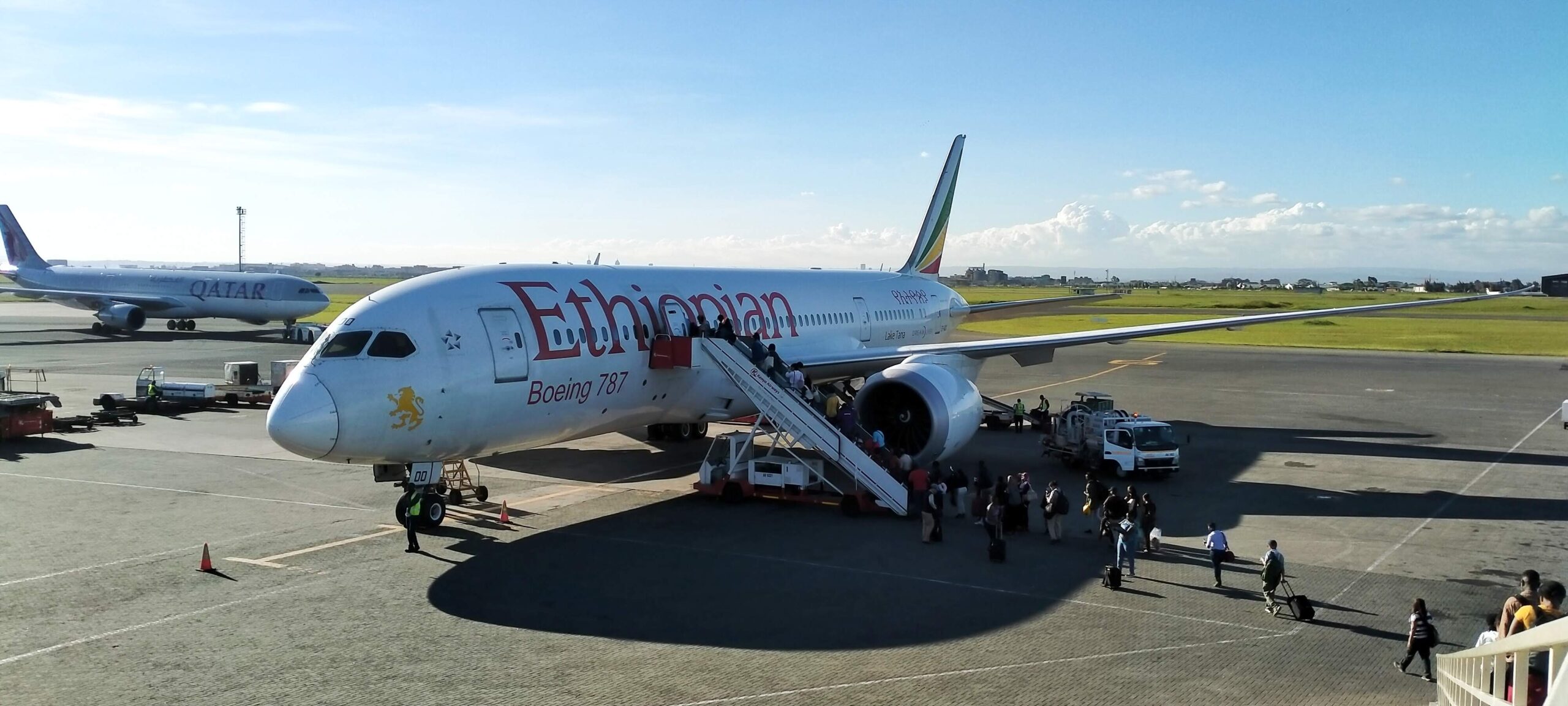
Cheap Domestic Flights
Ethiopian Airlines runs numerous daily flights between every major city and town across the country. If you enter Ethiopia with the airline, you also get up to 50% off all domestic flights.
This makes Ethiopia surprisingly easy to travel around, considering its size and geography. When planning your trip, make the most of inter-city flights.
Internet in Ethiopia
Let’s address the biggest hurdle for digital nomads in Ethiopia first.
There’s no denying that the country’s internet infrastructure falls far behind most of its neighbours. Ethiopia is vast, with its 110 million citizens spread far and wide across mountain ranges and isolated pockets of villages.
As a result, the internet in Ethiopia is usually terrible. While hotels and similar businesses offer free wifi, it rarely works. 4G+ has okay coverage, especially in bigger cities and towns, it’s not to be relied upon outside Addis Ababa.
While I was staying in Axum, for example, the network in the area went down for two days. No phone calls, texts, or data.
Within Addis Ababa, connections are more reliable and you have better options. However, outside of coworking spaces and upscale hotels, don’t expect the wifi to work even here. Fortunately, 4G+ coverage in Addis is excellent, and I was able to use it for work during my entire stay in the city.
4G+ Providers
There is currently only one telecom provider in Ethiopia: state-owned Ethio Telecom.
You’ll need to buy an Ethio Telecom SIM card as soon as you arrive. You can do so at Bole International Airport or in Ethio Telecom’s Bole neighbourhood branch.
Make sure you buy a 4G+ SIM card and purchase an unlimited plan for the duration of your stay. This guarantees fast speeds, unlimited data, and more reliable connections.
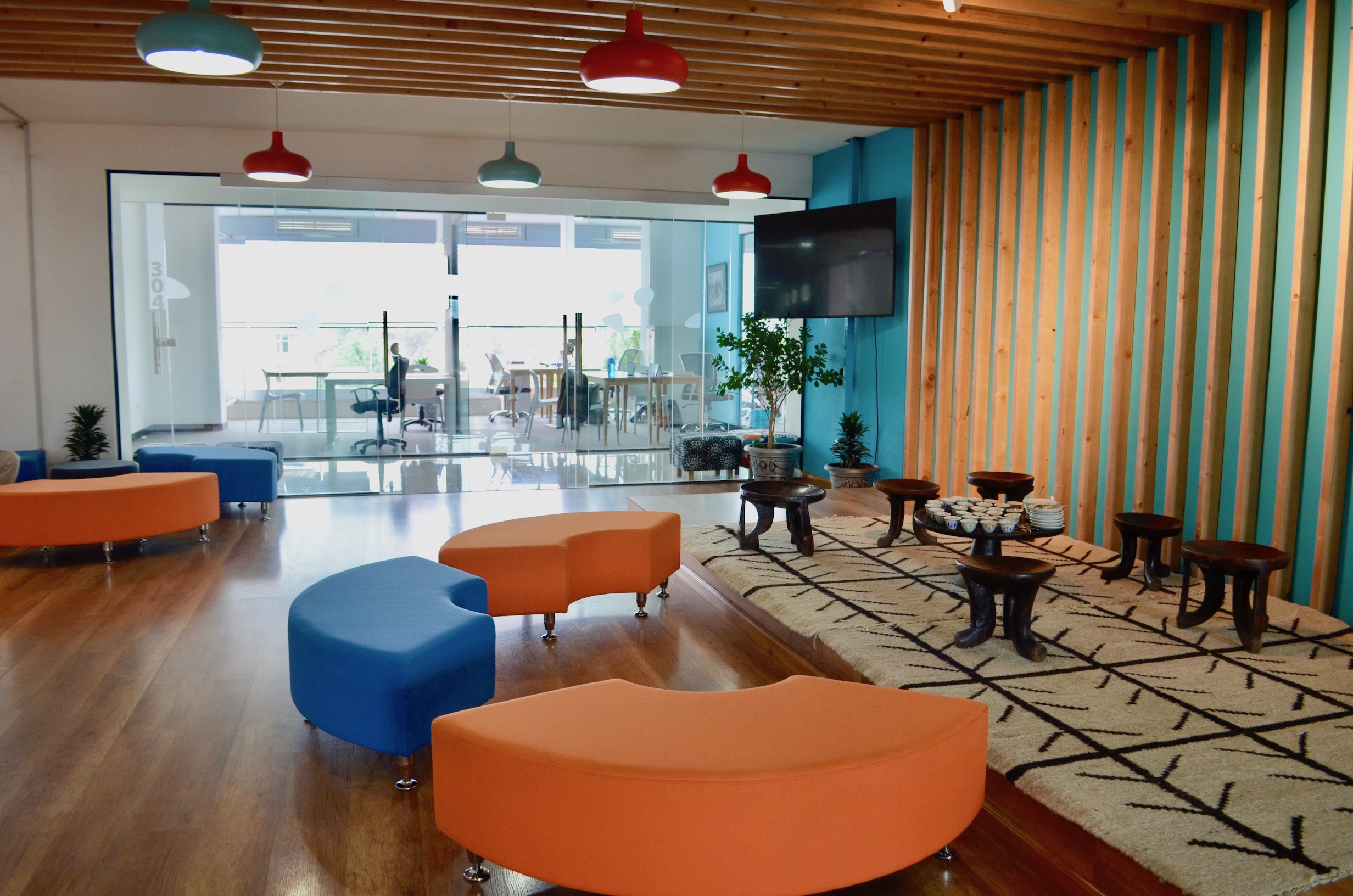
Addis Ababa Coworking Spaces
Addis Ababa is home to a small number of coworking spaces, three at the time of writing.
Each one is unique and offers coworkers something different. If you need reliable, fast internet and a comfortable workspace, they also offer flexible packages, starting with day passes.
Bluespace, Bole (pictured): Bluespace is located in the heart of Addis Ababa’s downtown, on a busy street with plenty of shops, bars, and cafes close by. Workspaces are plentiful and comfortable, and once a day you’re invited to join other coworkers for a traditional coffee ceremony.
iceaddis, Bole: In a quieter and more easy-going corner of Bole, iceaddis is the original Addis Ababa coworking space and innovation hub. It’s a great place not just to work, but also learn more about the city’s thriving homegrown startup scene.
Zellan, Kazanchis: North of Bole, in a popular residential area of Addis, Zellan is a cultural space and creative centre opened in 2020 to celebrate and support the city’s artist community. It’s amazing space that also provides desks for remote workers and digital nomads.
Working From High End Hotels
Hyatt Regency, Sheraton, and Intercontinental each have a local franchise in Addis Ababa, and they offer the most reliable wifi outside of coworking spaces.
Fortunately, they’re also very accommodating to people sitting around on laptops for hours on end and are popular spots for working amongst local digital nomads and expats.
I often worked from the Hyatt when in Addis, and was never disturbed or pressured to buy something by the staff.
The fact that Addis is home to the African Union probably helps.
Internet Blackouts
There’s one more issue you need to be aware of.
Ethiopia is undergoing significant political reform. You probably read that prime minister Abiy Ahmed Ali received the Nobel Peace Prize in 2019. This is just one small part of a much larger story.
Before the Coronavirus pandemic, the country was meant to hold its first democratic elections in fifteen years in 2020, and political tensions are high.
Due to recent unrest in two states, the government temporarily turned off the internet in most of the country – twice. These blackouts happened suddenly with little information about how long they would last.
There’s a real risk of this happening again soon. In fact, everyone in Addis expects it to. Bear this mind when planning a trip to Ethiopia. If you have deadlines and commitments that can’t be postponed, plan accordingly.
Ethiopia Destinations
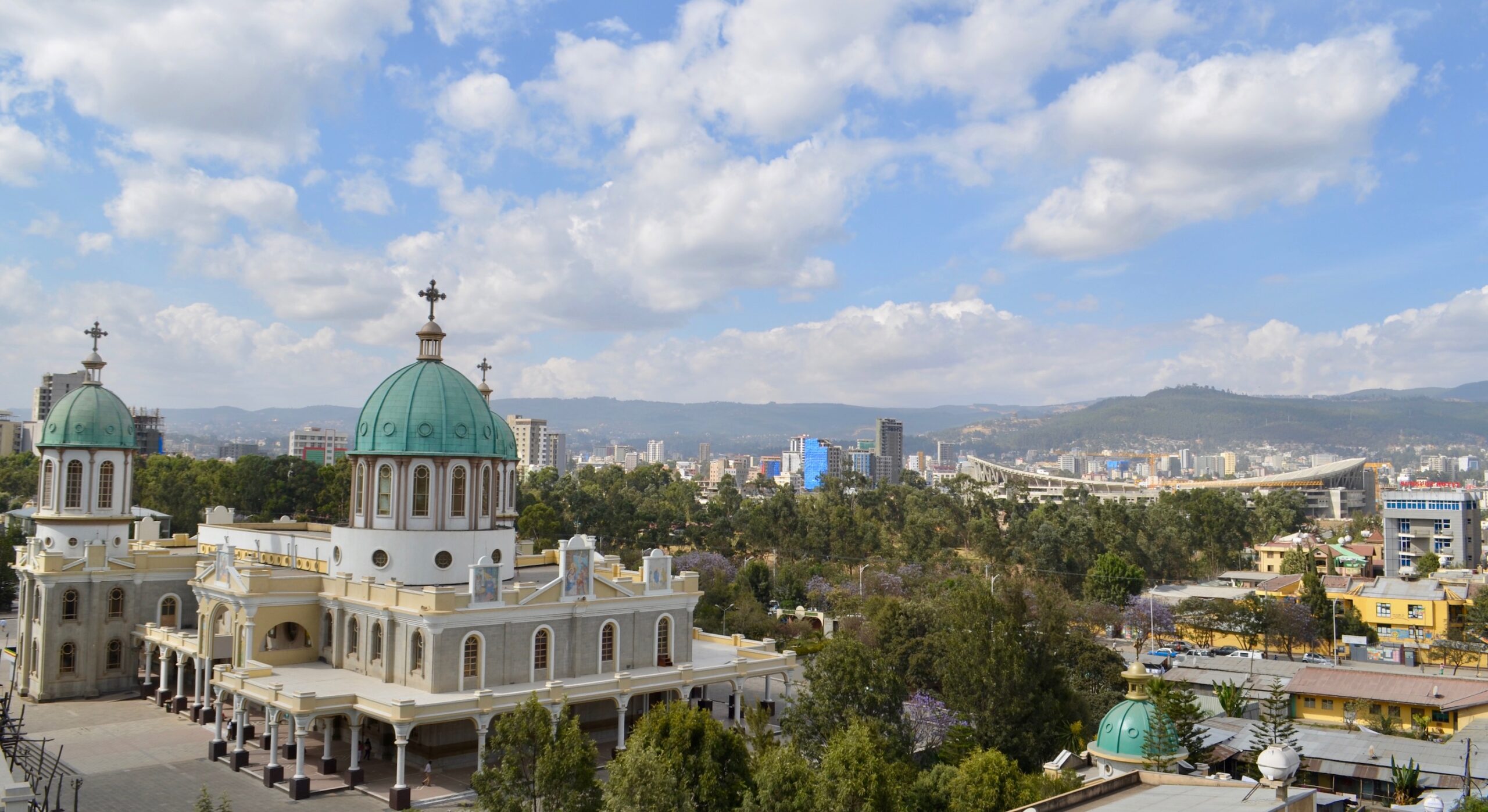
Addis Ababa
Like most capital cities in Africa, Addis Ababa is criminally overlooked by visitors to Ethiopia. A sprawling metropolis, it can be a lot to take in at first but will definitely get under your skin, if you give it a chance.
Take a few days to look beyond the large construction sites rapidly changing the skyline and you’ll find a city coming into its own.
Aside from the museums, churches, and historic buildings, in every neighbourhood in Addis Ababa you’ll plenty of independent stores, cafes, restaurants, and cultural centres. All started by young Ethiopian entrepreneurs, creatives, and recently returned diaspora, they perfectly blend modern and traditional Ethiopia, with amazing results.
Often, you’ll get to meet the owners and hear their stories over a delicious meal or shared coffee.
| Where to Stay | Mr. Marten’s Cozy Place Hotel Impress |

Gondar & Simien Mountains
While most well known as the best place from which to hike the spectacular Simien Mountains, Gondar’s old town is also worth exploring.
Still known as Piassa, from a brief Italian occupation, it’s a charming mix of historic Ethiopia sites and art deco Italian shop fronts and public buildings.
You can arrive here in the morning by flight, explore Gondar for the day, and start your hike through Simien National Park the following morning.
| Where to Stay in Gondar | Quara Hotel (book by phone) |
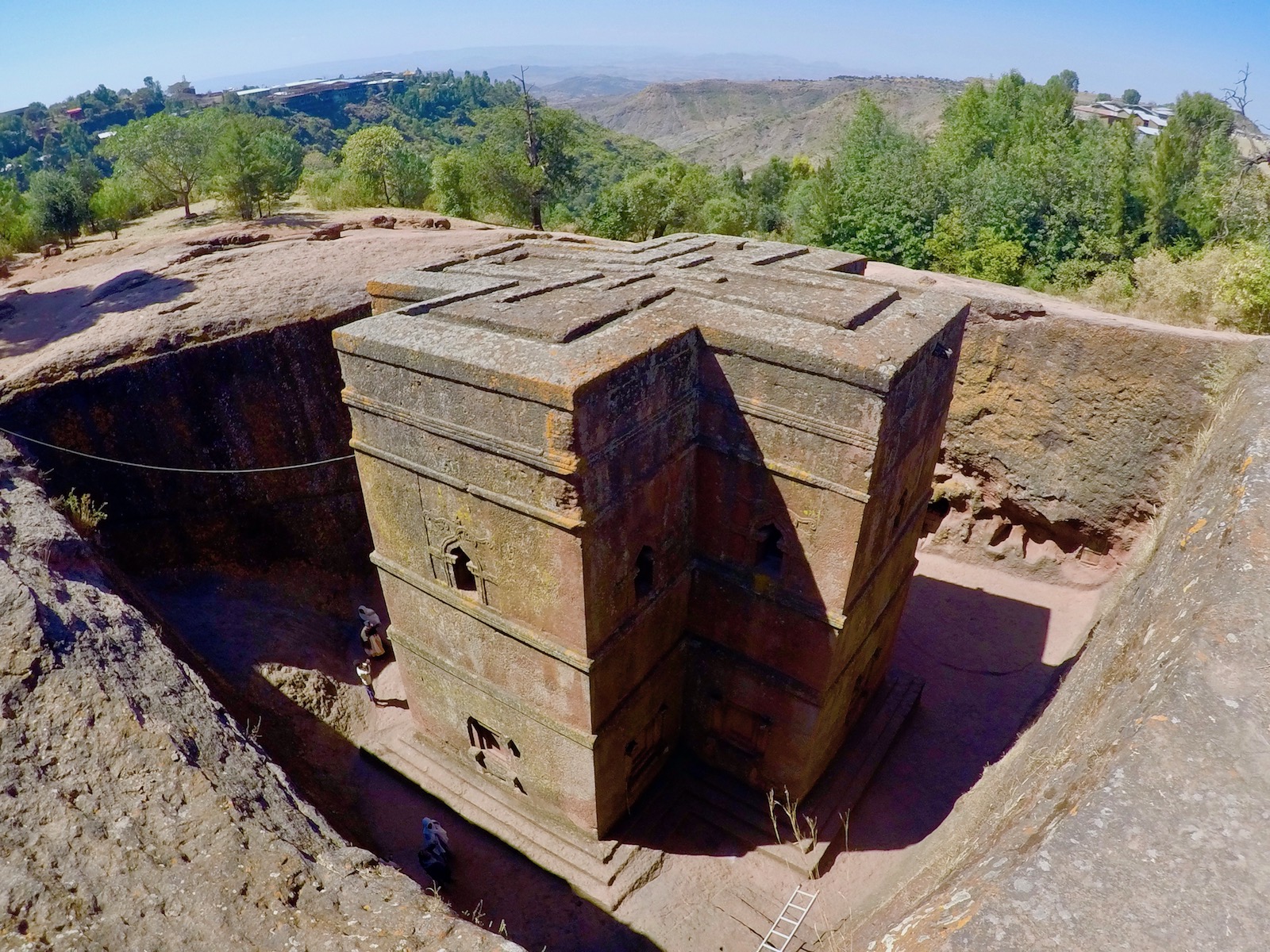
Lalibela
Lalibela, in many ways, perfectly encapsulates the timeless, otherworldly feel that permeates much of Ethiopia.
Home to 12 ancient underground churches – many of them built out of a single piece of rock – it’s the most iconic historical town in Ethiopia.
When you see the churches up close, it’s easy to understand why. They are nothing short of ethereal, mystical, and puzzling – especially if you’re lucky enough to attend early morning mass at one.
Make sure you also take a trip to the nearby Ben Abeba restaurant – built on a hill by an eccentric elderly Scottish woman, it’s a strange, fascinating place.
| Where to Stay | Merkeza Guesthouse |
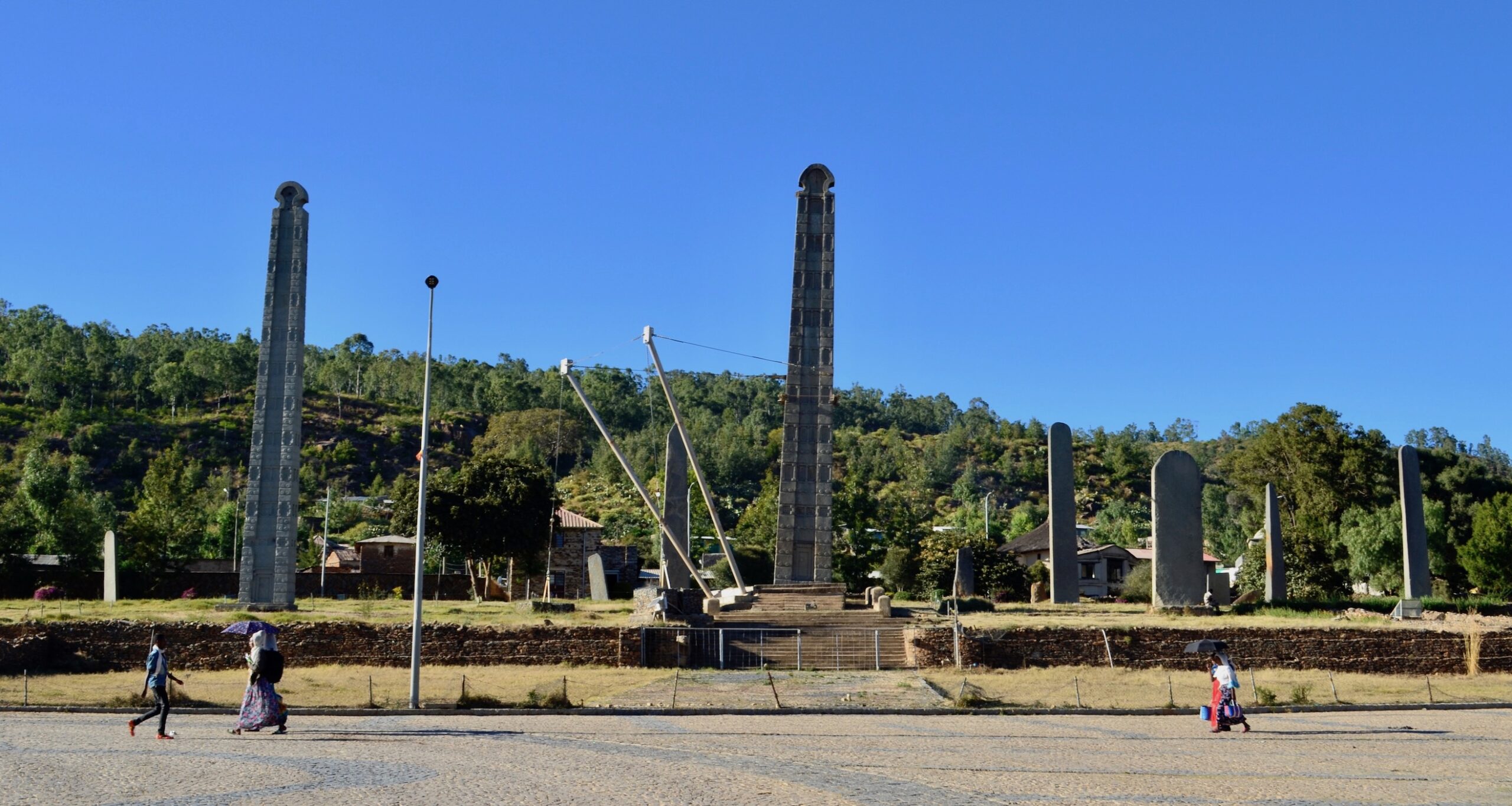
Axum
Axum is maybe the most sacred city in Ethiopia, from both a cultural and religious perspective. Continually inhabited since 400 BC, it’s packed with historic buildings and artifacts, not least of all the ancient Obelisks and a church believed to hold the Ark of The Covenant.
Just down the road from Axum is Adwa, where Emperor Menelik famously repelled Italy’s far superior army on March 1st, 1896, thus ensuring Ethiopia’s place in history as “the only country in Africa to withstand European colonization.”
Axum is small, charming, and easy to explore on foot. It’s worth hiring a guide for a day to visit the historic sites and, if possible, take a day trip to the Tigray churches a few hours away.
| Where to Stay | Hotel Delina Nyala Hotel |
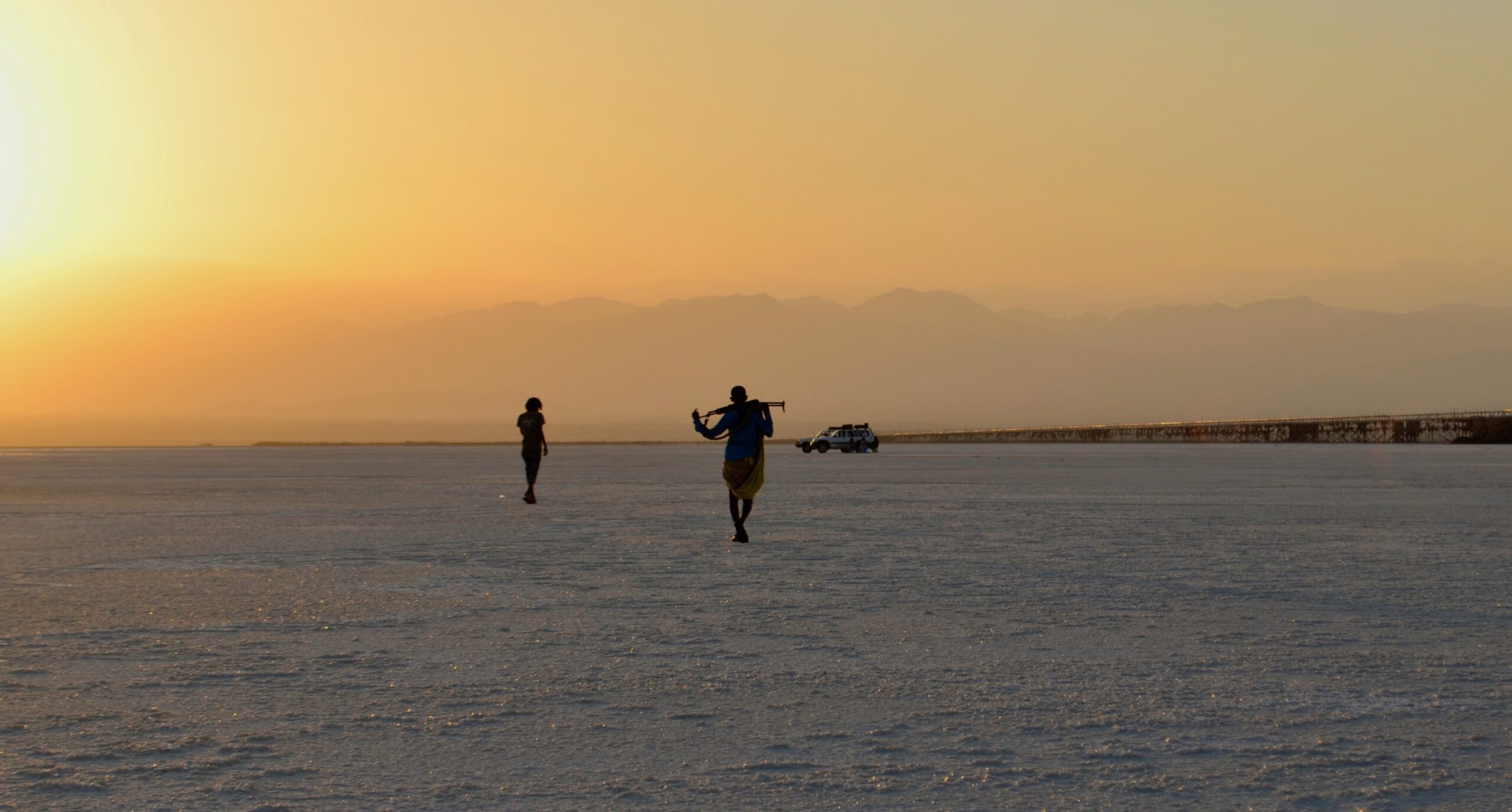
Mekele & The Danakil Depression
On the border of Eritrea, and feeling like the edge of the world, the Danakil Depression is one of the lowest-lying and hottest places on earth.
It’s also one of the strangest.
While the bubbling, multi-coloured spews or sulfur attract the most attention, there’s plenty more strange, fascinating experiences to be had at Danakil:
- Driving across the salt flats pre-dawn feels like you’re on the surface on the moon
- Chilling out in a natural hot spring 120m below sea level
- Watching a beautiful sunset over a lake of salt
- Interacting with the Afar people, hardened by centuries of living in one of the most inhospitable places on earth
| Where to Stay in Mekele | Parrot Guesthouse Weyra Pension |
Harar
Full disclosure: I’ve not been to Harar yet, but have heard many amazing things about the city.
Harar is the spiritual home of Ethiopia’s large Muslim population and one of the holiest cities in the whole of Islam.
It’s a bustling, lively market town, set within an ancient citadel of winding streets, shrines, mosques, and markets, ringed by the old town walls dating from many centuries ago.
I look forward to visiting Harar when I return to Ethiopia and experiencing its rich, unique character for myself.
When to Visit Ethiopia
Ethiopia can be visited year-round, even during the rainy season, from May to August.
At this time, while the weather will be less predictable, with lots of storms, there’ll also be far fewer tourists, and the scenery in the highlands will be incredibly green.
Best Time to Visit: September to February
Once the dry season starts, life in Ethiopia takes off. From September on, there are regular festivals and celebrations across the country, drawing huge crowds. This culminates in early January, with two of the most important Orthodox holidays in the country: Leddet (Christmas), January 6-7th; and Timket (Passover), January 19th.
Both festivals draw 10,000s of pilgrims to Ethiopia’s biggest cities. In Gondar, the crowds number about 300,000 people. They’re also now firmly on the tour itineraries for retired Westerners visiting Ethiopia on package tours, making January peak tourist season. It does spoil the atmosphere a little, unfortunately, as tourists run around incessantly sticking their cameras in pilgrims’ faces.
Still, the festivals themselves are spectacular.
This time of year, you’re also guaranteed pristine, dry, cool weather throughout the country. When hiking, the clear blue skies provide spectacular views across Ethiopia’s many peaks.
By March and April, much of the country will be dusty and hot, as it won’t have rained for many, many months.
Getting Around Ethiopia
Considering its size and historical lack of development, Northern Ethiopia is surprisingly easy to get around. Overland journeys can be long, but you can usually avoid these by planning ahead and flying.
How you travel around Northern Ethiopia depends on whether you’re here on holiday or plan on living in the country for a while.
If visiting Ethiopia on holiday, take 2-3 weeks to do the ‘Northern Loop’ starting in Addis Ababa and visiting each city in an extended circle back down to Addis Ababa.
If staying in Ethiopia long term, settle in Addis Ababa and fly to different cities for sightseeing and hiking on the weekends.
Of course, you could do both, taking a couple of weeks off at the start of your stay to explore the country, followed by shorter trips out of Addis Ababa on the weekends.
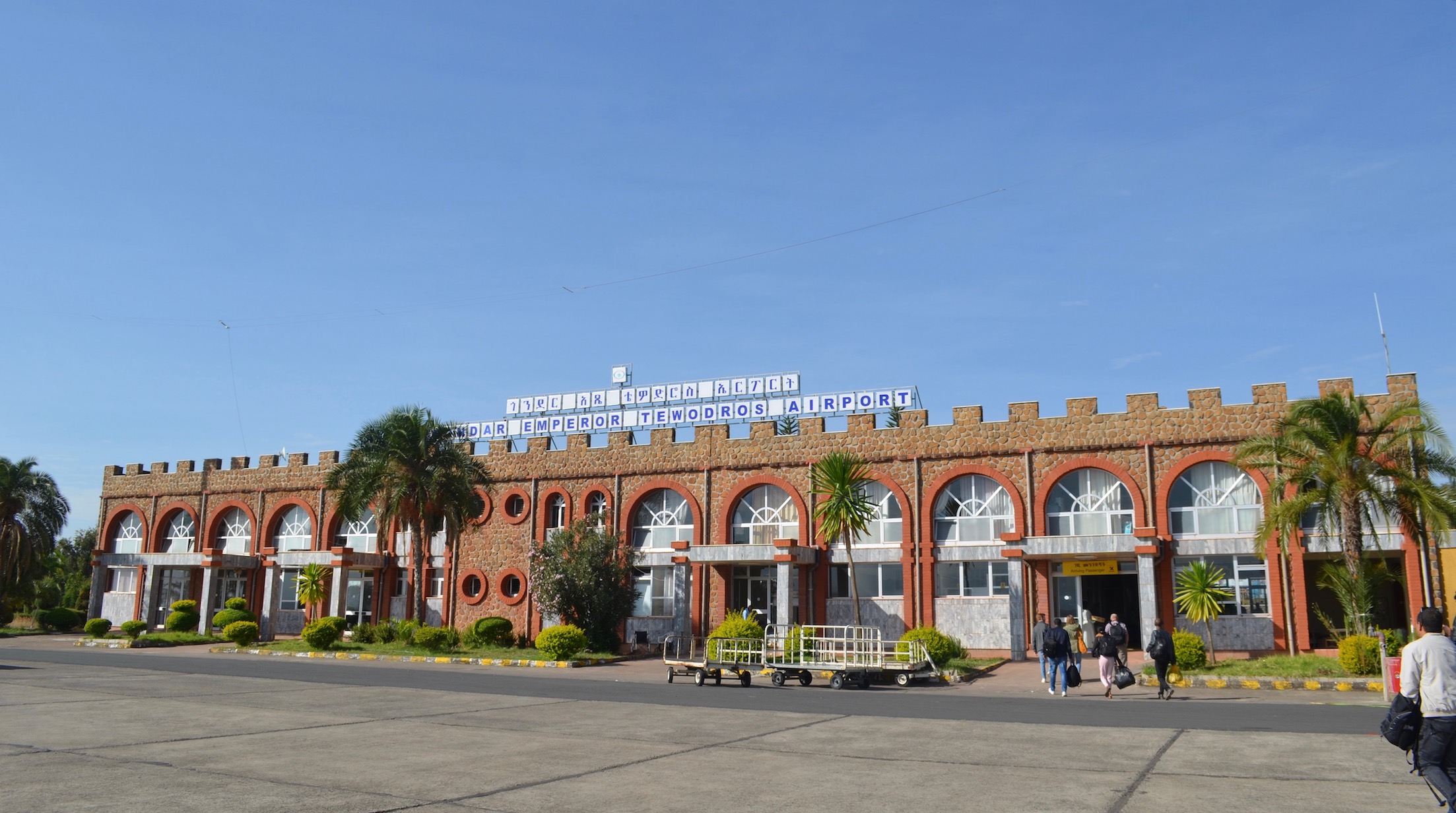
Domestic Flights
Ethiopian Airlines has daily flights between every major town and city in Northern Ethiopia. While some flights connect via Addis, there are direct options also, for example, Gondar to Lalibela, and Axum to Lalibela.
Flights last roughly an hour in most cases and are very comfortable.
Once again, if you fly into Ethiopia with the state airline, you get up to 50% off domestic flights. This will save you a lot of money and time.
A one hour flight between two cities can take over twelve hours overland.
Overland Travel by Bus
Ethiopia is crisscrossed with many excellent roads and highways, cutting through some beautiful scenery. Buses are generally in good condition and run on regular schedules.
However, given the country’s size, distances can be great, and bus journeys long.
I only recommend taking short bus trips, for example, the 4-hour journey between Axum and Mekele. Otherwise, you risk spending a lot of your time in Ethiopia on 12+ hour bus trips that quickly become tedious and uncomfortable.
Overland Travel by Train
If you’re traveling to Harar, there is a regular train service from Addis Ababa that goes all the way to Djibouti, and stops in Dire Dawa close to Harar.
Check here for details on travel times, costs, and schedules.
Money in Ethiopia
Ethiopia is an almost entirely cash-based economy.
Don’t expect to use your card very often. In fact, don’t expect to use it at all – outside of high end hotels and Ethiopian Airlines ticket offices.
Instead, try to take a lot of US dollars with you.
While hotels, tour companies, ticket offices, shops, and tour guides almost never accept cards, they prefer US dollars to Ethiopian Birr.
This is also better for you, as Ethiopian Birr doesn’t come in high denominations. Without some USD, you’ll end up constantly withdrawing endless stacks of cash from ATMs to pay for trips and hotel stays, a mistake I made on my first trip to Ethiopia.
What follows is a very basic outline of costs in Ethiopia, when visiting the most popular destinations.
Travel Expenses in Ethiopia
Time in Ethiopia
This is a small thing to be aware of, but it’s important:
Ethiopia has its own timezone.
Geographically, Ethiopia falls within East African Time (EAT, GMT +3) – known as ‘faranji time’ – and administratively, this is the clock the country runs on.
However, traditionally, Ethiopia uses a 12 hour day and night cycle. So, the day begins at dawn (6.00am) and finishes 12 hours later, at midnight. Then the night time cycle starts.
In a way, this means Ethiopians operate 6 hours ahead of, or behind, EAT.
It gets confusing. The simplest thing to remember is this:
Any time you make an appointment with somebody in Ethiopia, especially outside of hotels and tour operators, clarify whether the time being discussed is in Ethiopian or faranji time.
Ethiopia Tourist Visas
For most people, entering Ethiopia on a tourist visa is relatively easy.
Safety in Ethiopia
Ethiopia is a very safe country for tourists and foreigners living here.
While it can be off-putting hiking through the countryside with three armed security guards, just remember that this is mostly a precautionary measure.
Generally speaking, Ethiopians are friendly and easygoing and will pay you little regard unless you need help or strike up a conversation.
Anecdotal reports suggest pickpocketing is on the rise, especially in Addis Ababa, so mind your belongings when walking around cities and large crowds. I was pickpocketed during Timket, despite being warned I’d stand out like a sore thumb in the crowd.
At night, cities aren’t well lit, and streets can be empty, so practice caution and use taxis or tuk tuk as much as possible. Addis Ababa has a local version of Uber called ‘Ride’ which you can download on iOS and Android.
Due to the reforms underway in Ethiopia, there is a real possibility of political unrest in the coming months and years. There’s no way of predicting when this will happen, so keep an eye on the news and avoid any demonstrations in cities.
